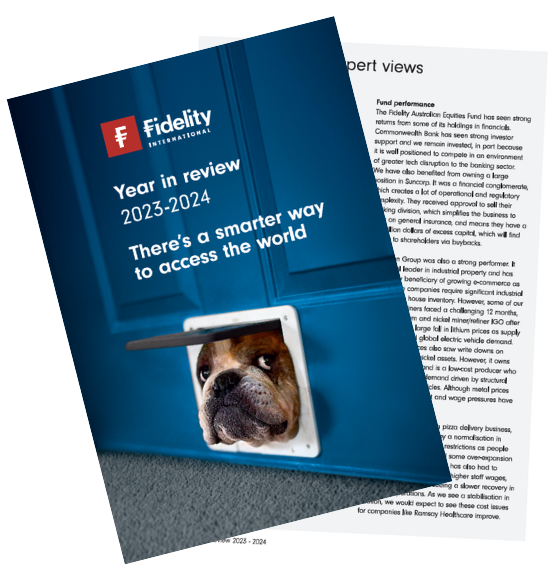A stable economic backdrop
The consumer has been strong despite higher rates and there are two factors driving this: immigration is returning after Covid and those who arrive are spending on goods, and older people with no debt and are cash rich have been benefiting from higher deposit rates, so have been able to spend typically on experiences and services (travel, restaurants, etc).
However, younger people have more broadly been constrained due to higher rents and higher cost of living, while mortgage owners have faced higher rates, thus less disposable income. Interestingly, the unemployment rate is low, so those facing higher rents and mortgages still have work to help pay these costs.
A stable backdrop has been supportive for the financials sector, and higher rates has helped the net interest margins for banks. There has also been some optimism around improving credit quality versus the impairments feared post-Covid. The consumer discretionary sector has also done well as consumption has held up. However, the materials sector has felt the pain from problems in China. China is the world’s largest consumer of metals, with the property sector being key to this demand.
However, a slowdown in China property has seen a fall in demand, which impacts a number of Australia’s miners.
Fund performance
The Fidelity Australian Equities Fund has seen strong returns from some of its holdings in financials. Commonwealth Bank has seen strong investor support and we remain invested, in part because it is well positioned to compete in an environment of greater tech disruption to the banking sector. We have also benefited from owning a large position in Suncorp. It was a financial conglomerate, which creates a lot of operational and regulatory complexity. They received approval to sell their banking division, which simplifies the business to focus on general insurance, and means they have a few billion dollars of excess capital, which will find its way to shareholders via buybacks.
Goodman Group was also a strong performer. It is a global leader in industrial property and has been a key beneficiary of growing e-commerce as e-commerce companies require significant industrial unit space to house inventory. However, some of our positions in miners faced a challenging 12 months, especially lithium and nickel miner/refiner IGO after we witnessed a large fall in lithium prices as supply growth outpaced global electric vehicle demand. Weaker nickel prices also saw write downs on recently acquired nickel assets. However, it owns high quality assets and is a low-cost producer who should benefit from demand driven by structural growth in electric vehicles. Although metal prices are down, general cost and wage pressures have been high.
Our holding in Dominos, a pizza delivery business, was negatively impacted by a normalisation in home deliveries post Covid restrictions as people started going out again, and some over-expansion in Japan. Ramsay Healthcare has also had to contend with costs, mainly via higher staff wages, and at the same time is seeing a slower recovery in post-Covid operations. As we see a stabilisation in inflation, we would expect to see these cost issues for companies like Ramsay Healthcare improve.
Or explore our other areas of focus here:
- Foreword - Lawrence Handon, Managing Director
- Global equities - James Abela and Maroun Younes, Co-Portfolio Managers, Fidelity Global Future Leaders strategies
- Asian equities - Anthony Srom, Portfolio Manager, Fidelity Asia strategies
- Global emerging markets - Amit Goel, Portfolio Manager, Fidelity Global Emerging Markets strategies
- Sustainable investing - Daniela Jaramillo, Head of Sustainable Investing

